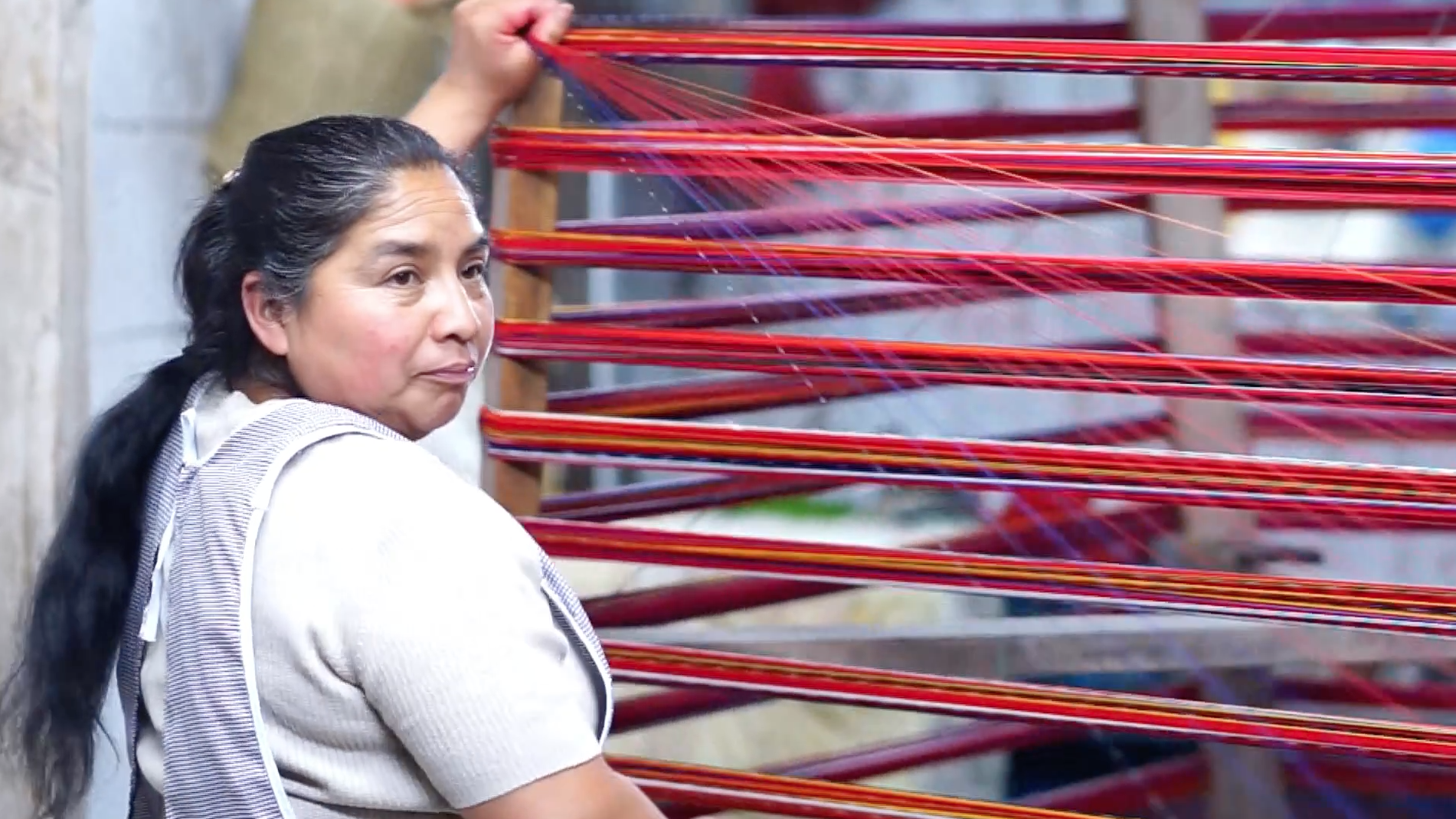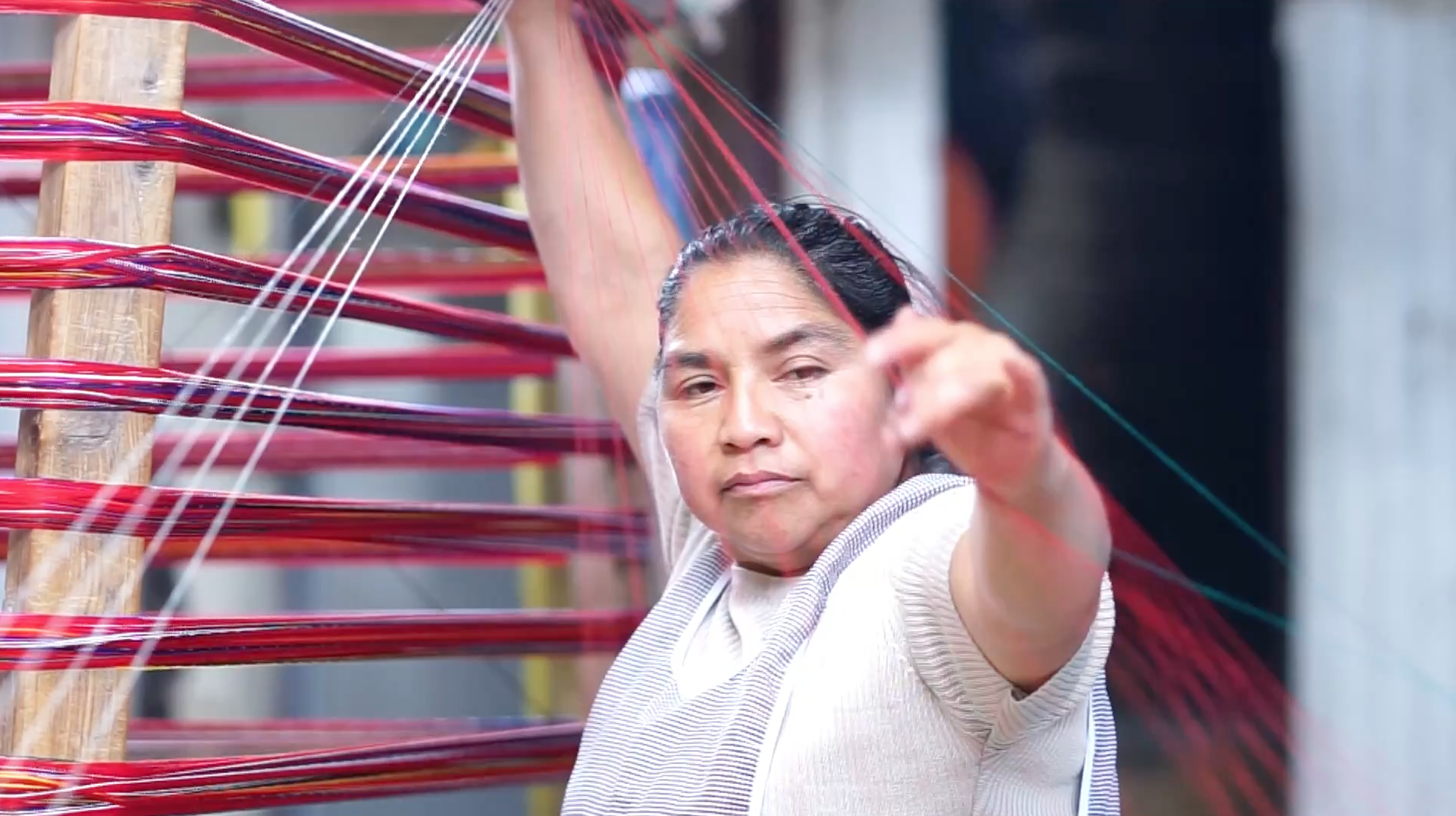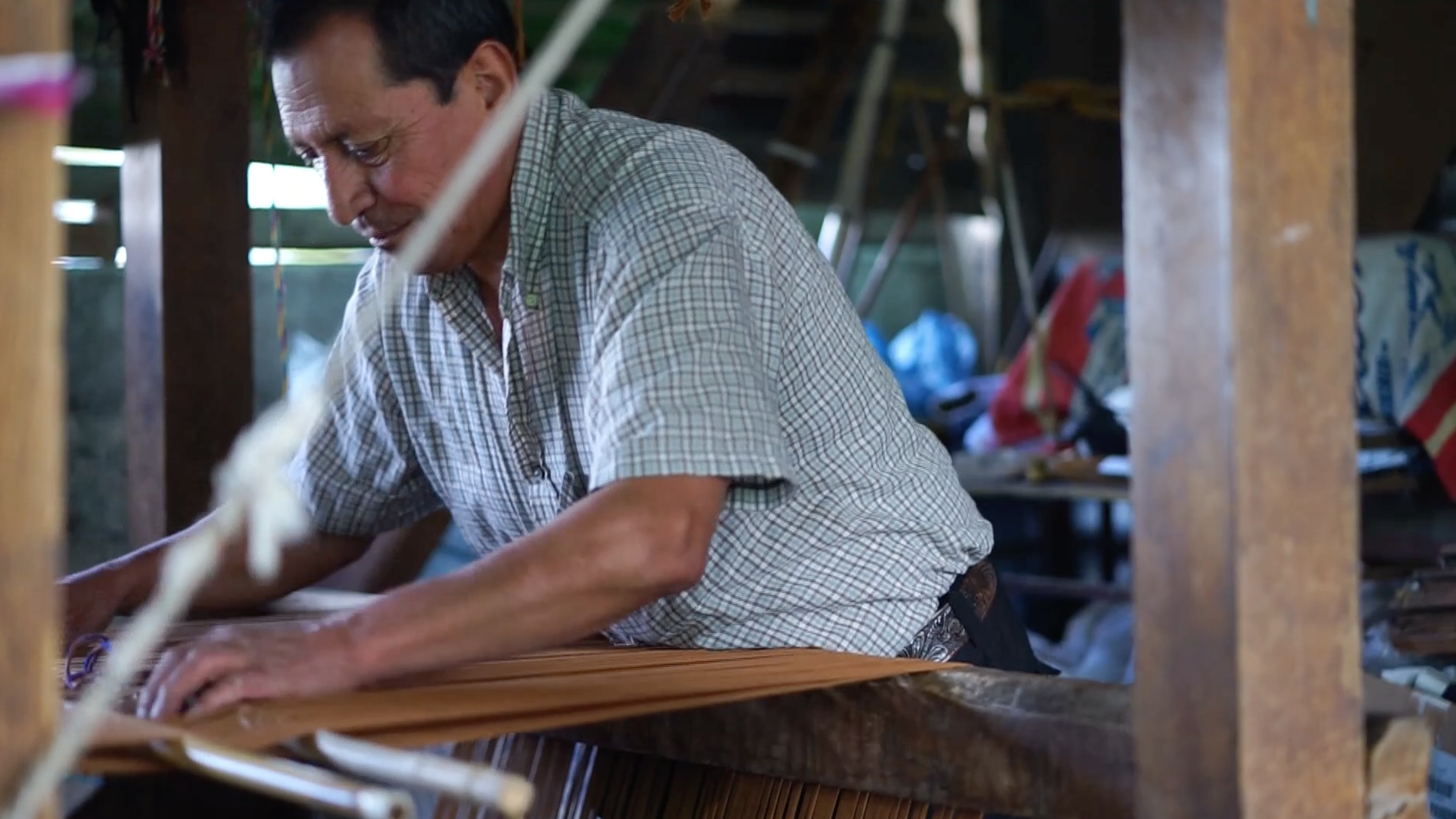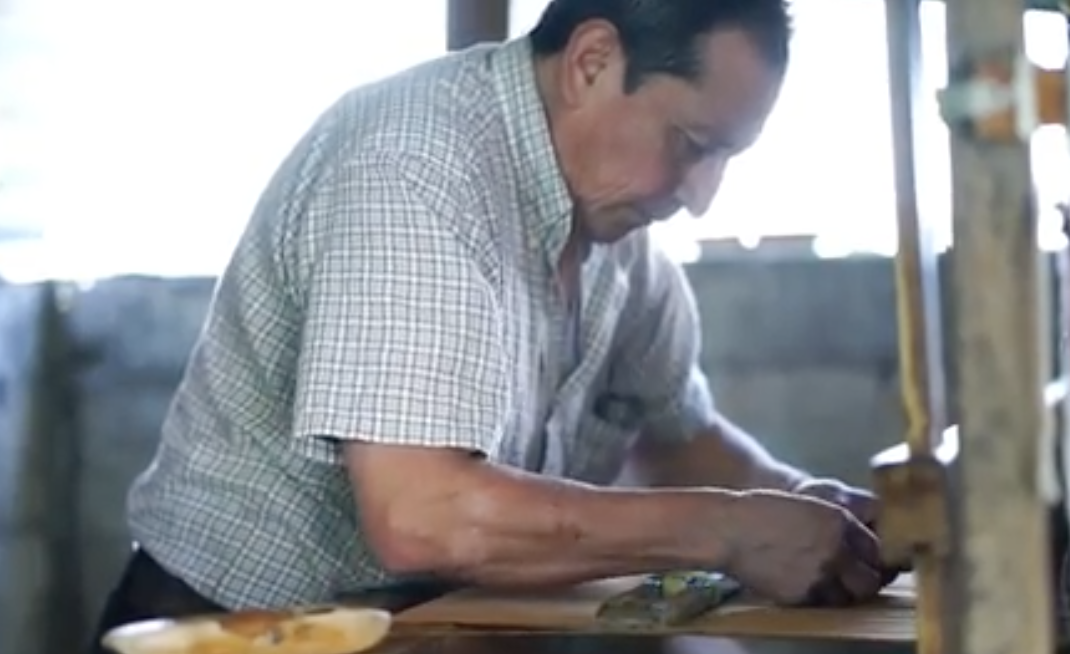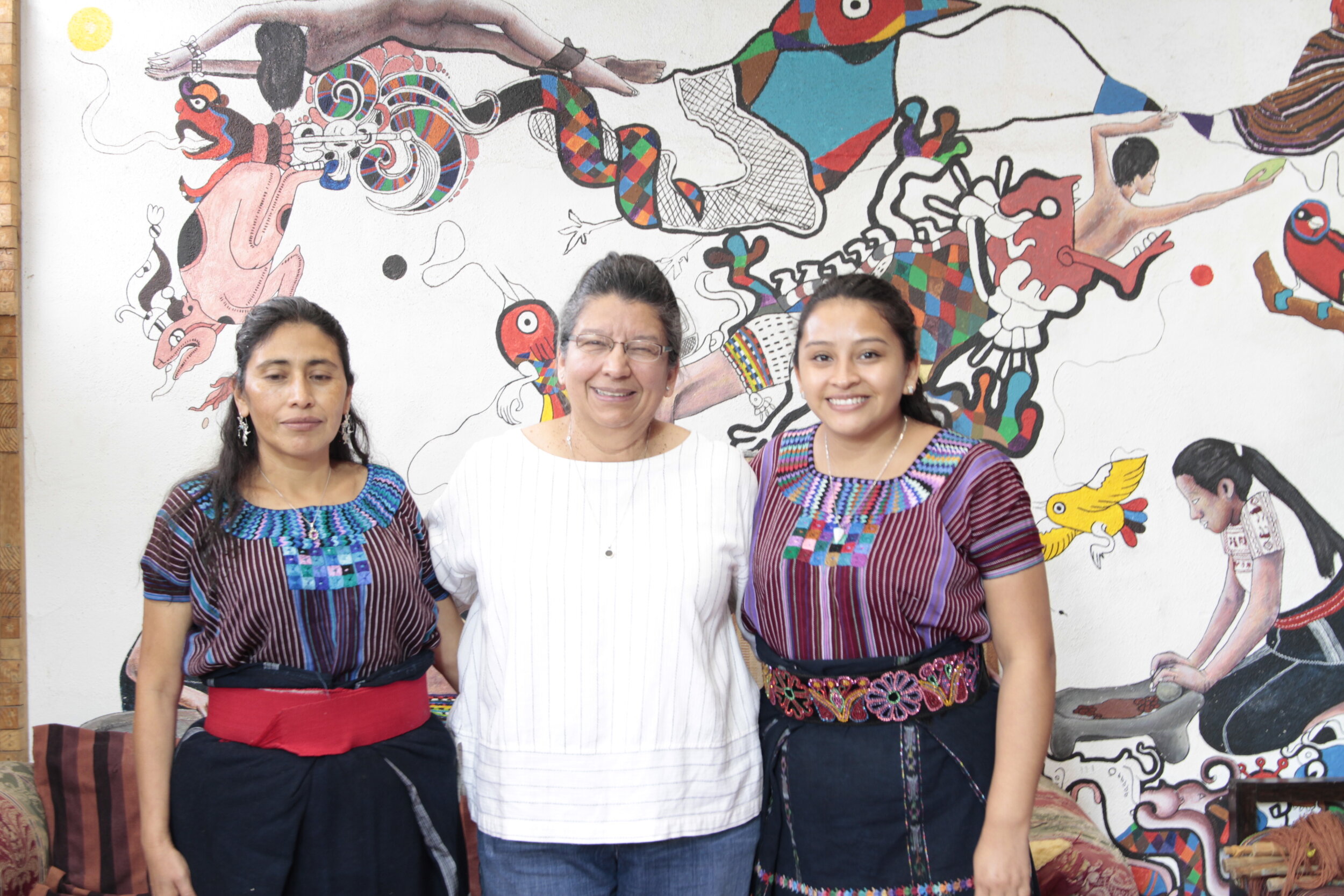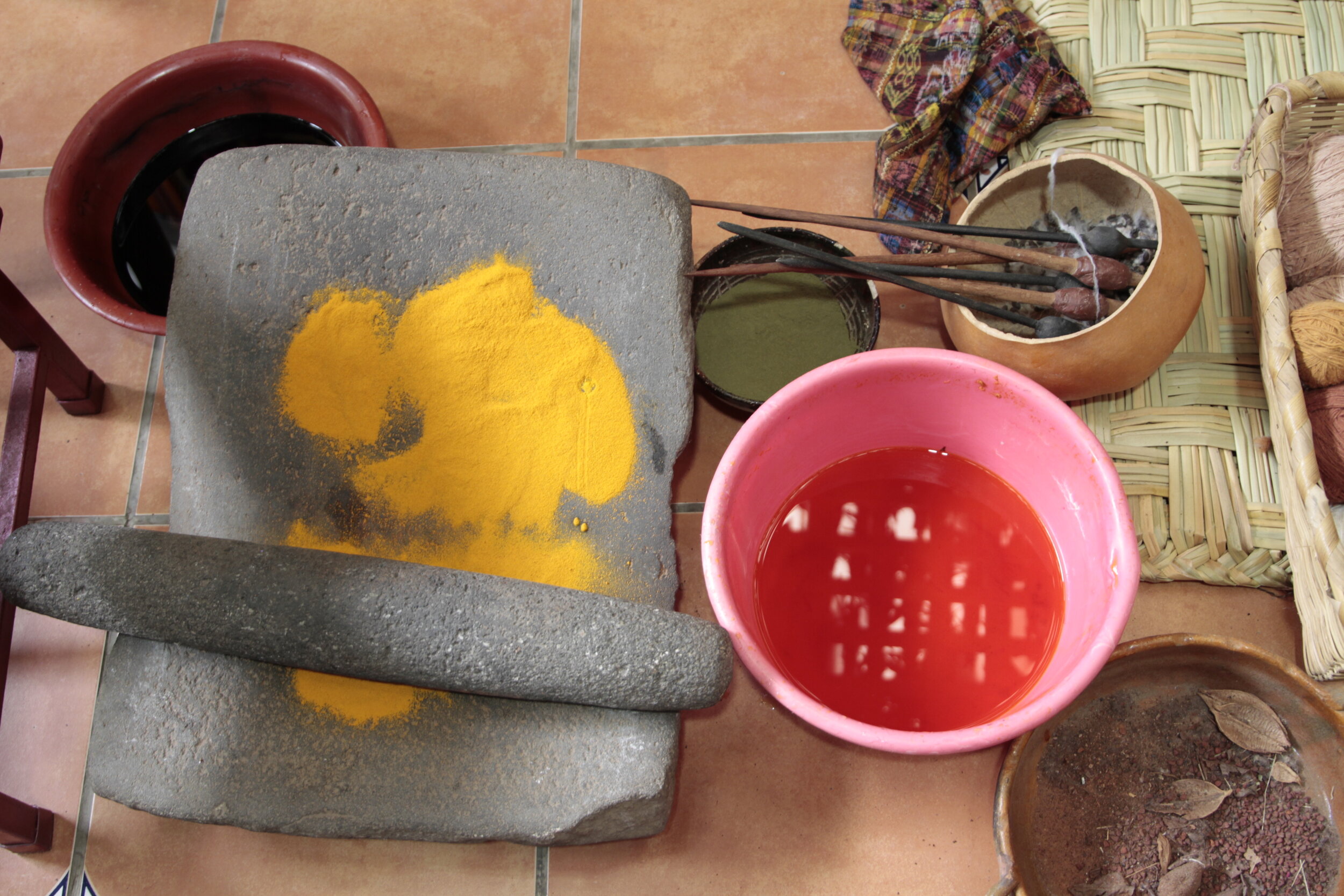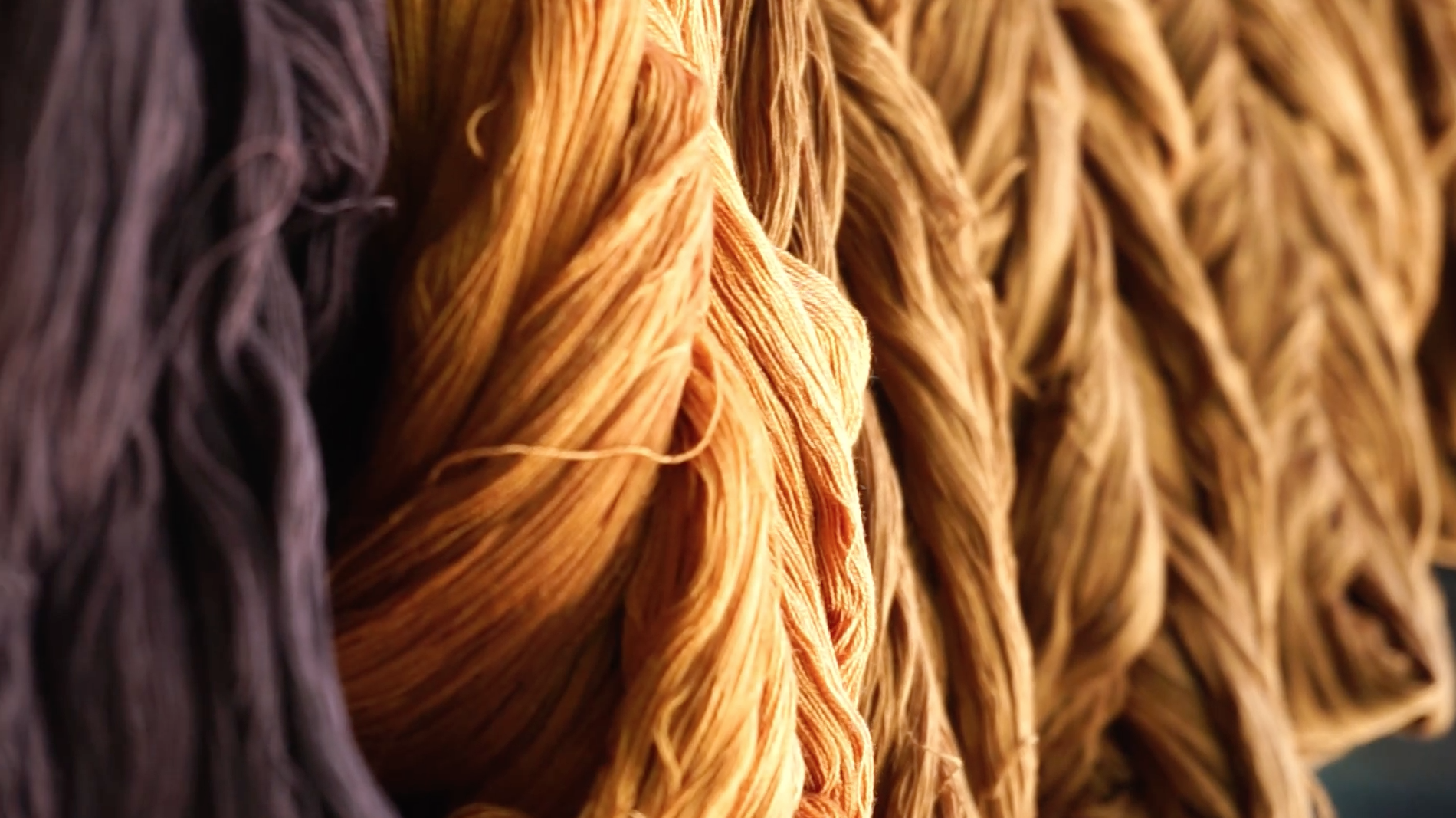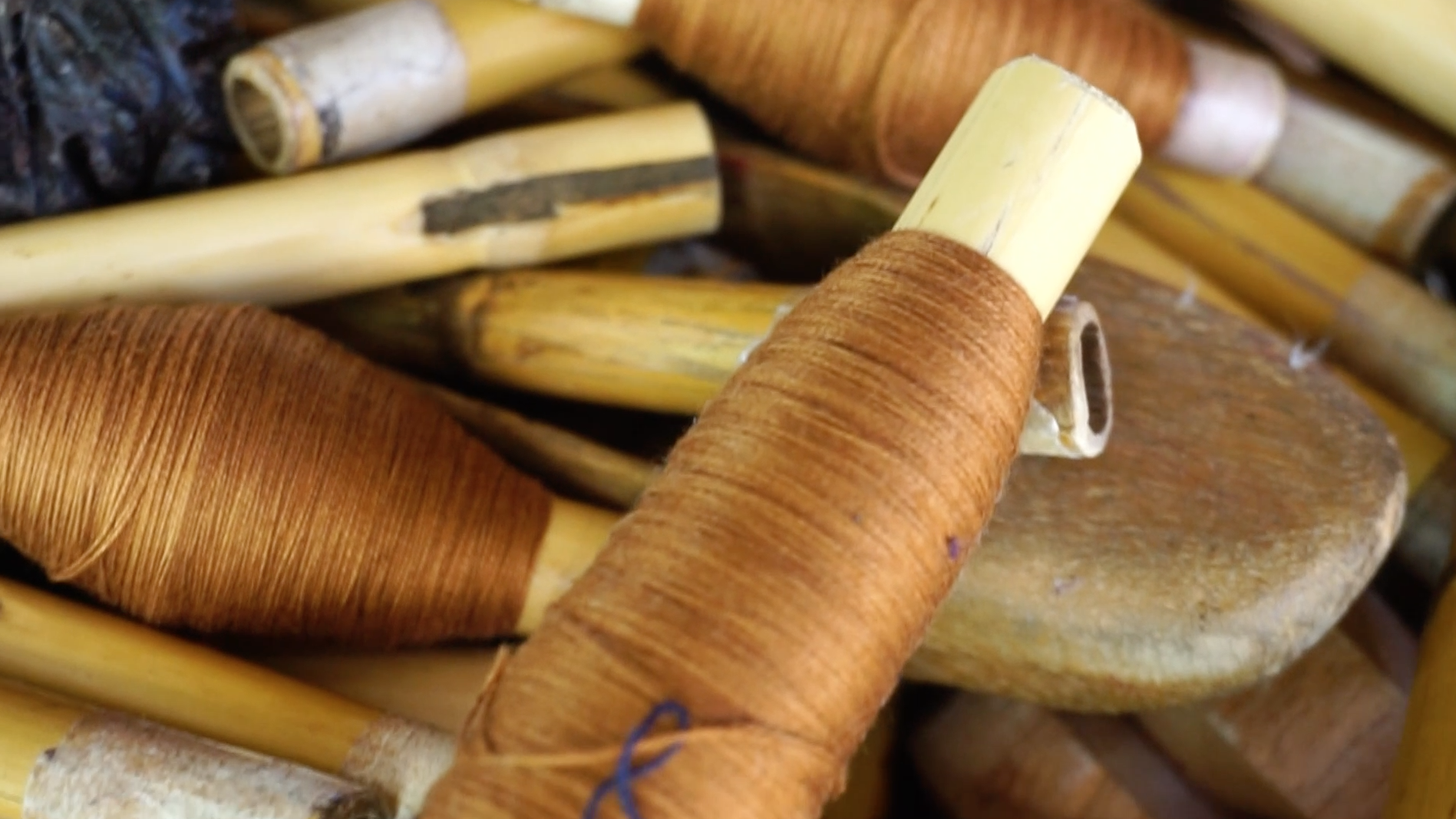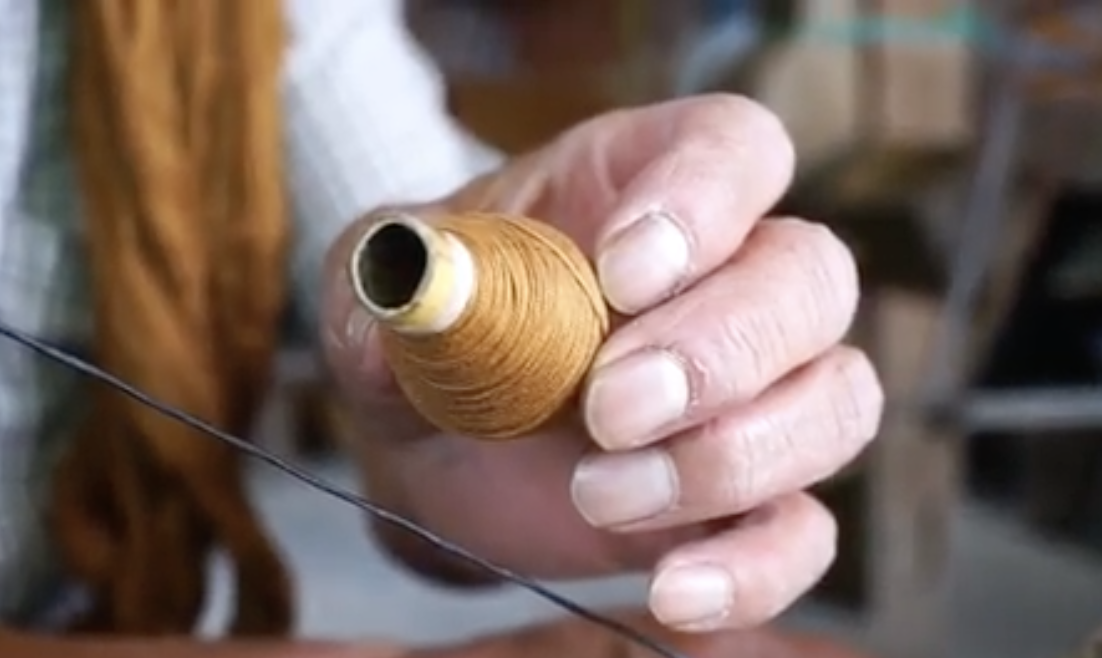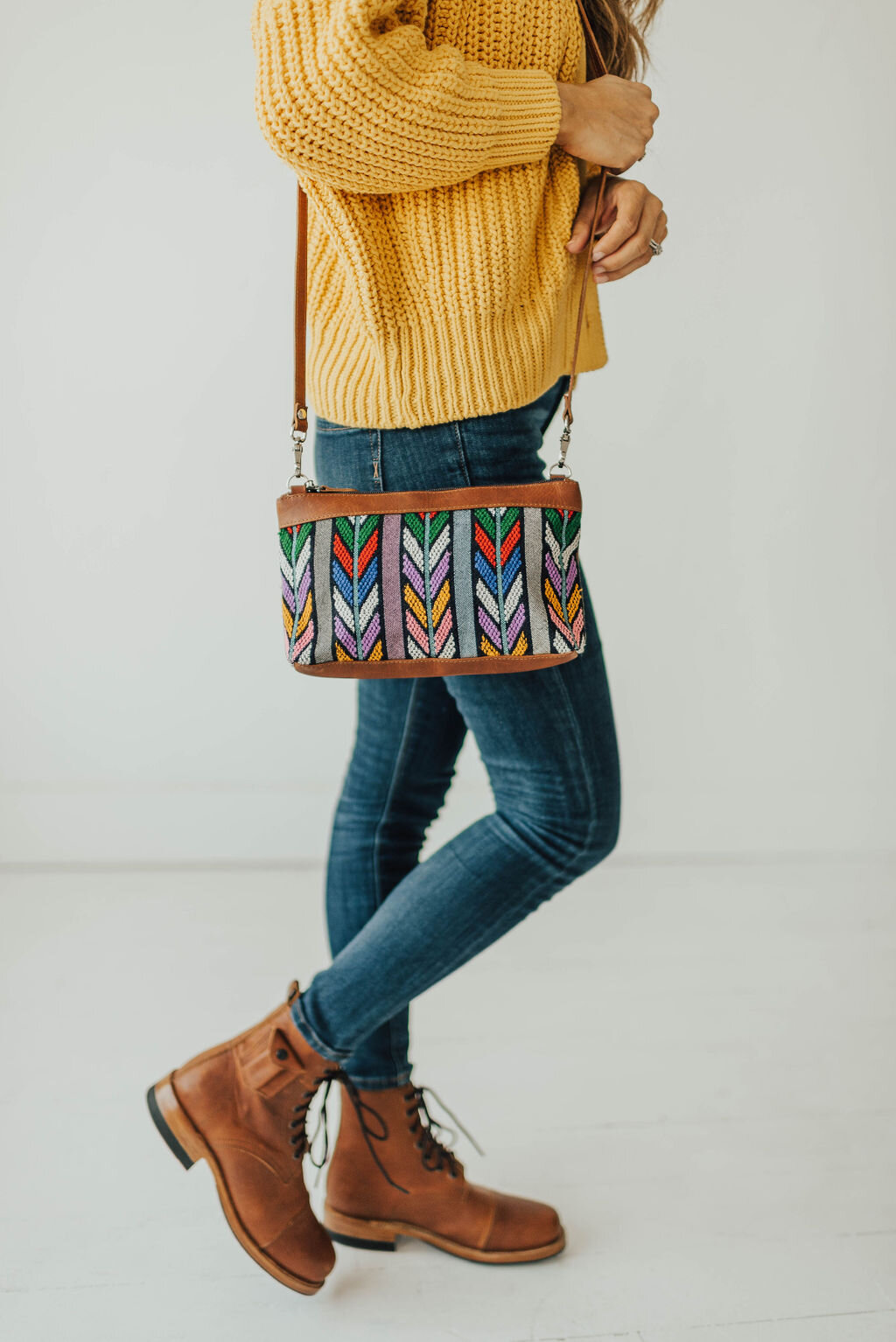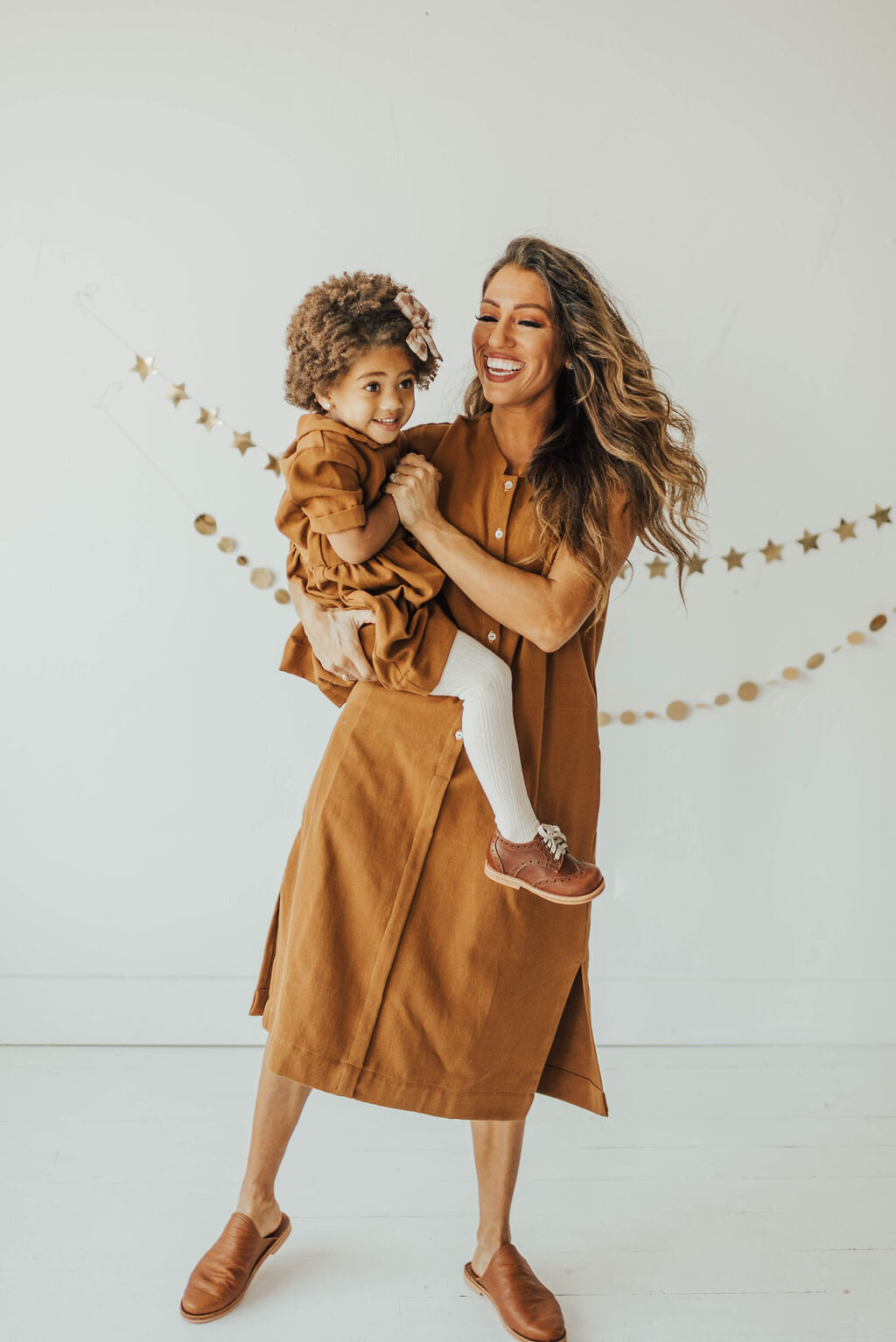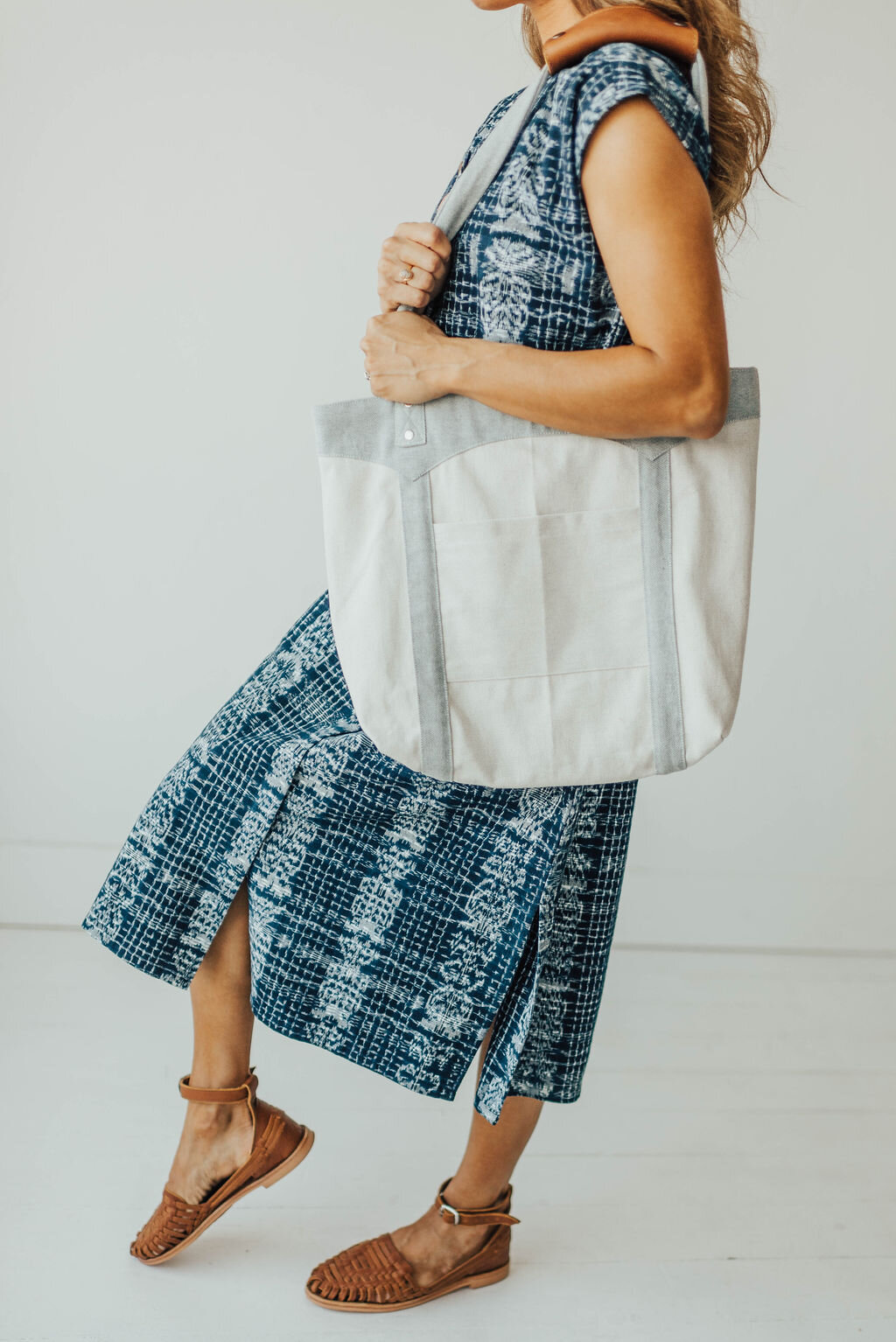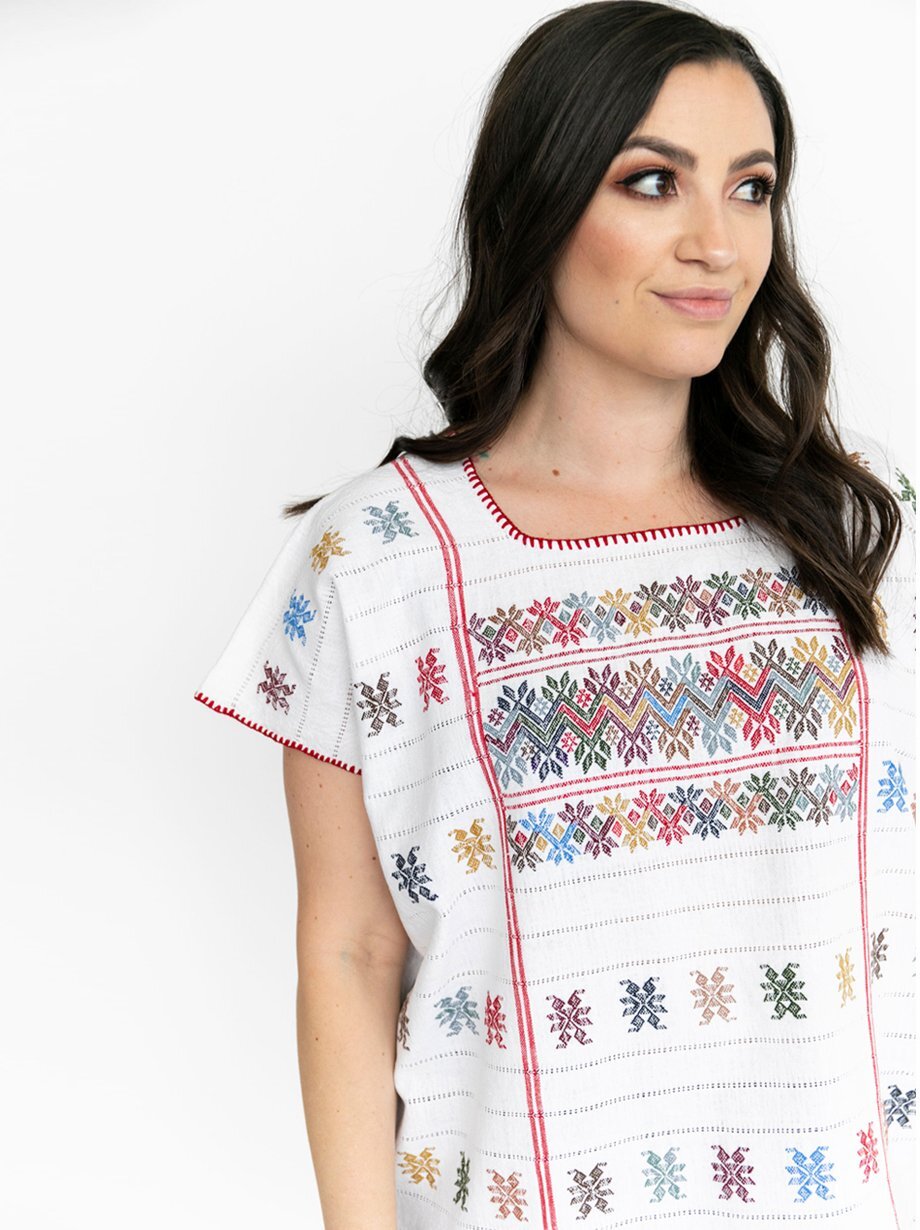This ethical fashion brand brings dignity by preserving traditions in Guatemala
There is remarkable beauty in fabrics made by human hands and imagination, evoking both nostalgia and novelty. I recently learned from Cony Larsen, founder of Mikoleón, how the planet benefits more from clothing created by a compassionate mind than apparel rapidly churned out by computerized machinery.
Mikoleón is a clothing and shoe store striving to preserve Guatemalan textile and cobbling traditions using naturally-sourced material. The mission of the company is to provide an option for shoppers who want beautifully-crafted fashion without ruining the planet. Additionally, her business model offers highly gifted artists a platform on which to sell their fashionable art while making a good living.
Mikoleón is named for a resourceful and adaptable primate (also known as the “honey bear” in English). The company seeks artisans the old-fashioned way—in person! Cony drives on the unpaved roads of small villages to personally ask locals if they know of weavers and cobblers in need of work. In this way, she is able to locate talented people who are skilled in unique weaving and crafting techniques.
Cony finds great satisfaction in discovering talented people and having the ability to offer them fair compensation for the quality of their work. “Being able to provide sustainable work for our artisans is part of our mission,” she said. “We want to preserve weaving and cobbling traditions, and that’s great, but being able to see our artisans progress financially and see the hope in their eyes is the drive behind all of our efforts.”
The clothing you can find in colorful and whimsical designs on the Mikoleón online store are created by hand—on foot-looms and back-strap looms. The machinery used in the fast-fashion industry leaves behind harmful waste, a practice Cony is not willing to support.
“Footloom and backstrap loomed textiles have the lowest carbon footprint on the planet!” Cony told us. In addition to the energy saved by using looms powered by the hands of artisans, Mikoleón sources chemical-free, natural cotton. “Our fabric is dyed many times using plant-based dyes so no harmful chemicals are being washed down our rivers.”
“Being able to provide sustainable work for our artisans is part of our mission,” she said. “We want to preserve weaving and cobbling traditions, and that’s great, but being able to see our artisans progress financially and see the hope in their eyes is the drive behind all of our efforts. ”
When you see a stunning latch stitch and leaf design on a top or a dress in Cony’s store, those designs are woven into the fabric rather than printed. Commercially produced jeans and printed textiles use an enormous amount of water in order to rinse the excess chemicals and dyes off the fabrics; this, in turn, pollutes rivers. Rather than add to the damage already done to our natural water resources, Cony turns to the ancestral, wasteless beauty of plant-based dyes.
Several years ago, Cony met an artisan at work in Guatemala and discovered how new colors are made endlessly without contributing to pollution. While crossing Lake Atitlan, Cony met Delfina, a young mother and master of mixing plant-based colors, in the small village of San Juan La Laguna. “I asked her what she did with the leftover dye once she completed a batch of thread. ‘Do you throw away the leftover mix?’ I asked. Surprised, she replied, ‘We don’t throw away anything! I take the leftover mixes and combine them to make a new color!’”
The sustainable tradition infused in Cony’s business practices bleeds into vibrant transparency when it comes to sourcing ethical raw source material and composting what is left behind from production. The denim used in Mikoleón clothing is sourced from the scraps created by manufacturers making new jeans. Ordinarily, these scraps end up in the landfill. Any unusable cotton is donated to local coffee-growers who turn it into compost to nourish the soil.
While Cony believes her natural, more holistic approach to manufacturing clothing and quality shoes would be difficult to replicate on a large, corporate scale, companies like Patagonia and Eileen Fisher, who are making big changes in the name of sustainability, give her hope for tomorrow.
More than providing customers and crafters with a more honest exchange of well-made apparel and shoes, Cony was changed in the process of developing her business. Her own buying habits were altered to fit her expanded knowledge of how fast fashion is contributing to our crumbling climate.
“I have learned to ask clothing companies questions before I make a purchase,” she said. “I find myself thinking more about the impact my buying habits have on our environment. I really learned to choose between need and want. As a consumer, I want more transparency from the brands I love and I know my customers would want the same from us.”
To experience the habit-changing magic of sustainable fashion, be a part of Cony’s story and enjoy the wearable artwork in her store. Your purchase supports a woman-owned business checking all the boxes of ethical awareness for human rights and environmental responsibility. See how you and your family can style the fashion of Mikoleón’s one-of-a-kind pieces by scrolling through their beautiful Instagram page.
If you’ve fallen in love with Mikoleon like we have, you can shop their site at 10% off with code DRESSEMBER10. You can also shop a variety of products from the Mikoleon x Dressember Collection. 20% of your purchase from the Mikoleon x Dressember Collection will benefit our work to fight human trafficking at Dressember.
About the Author
G Okuma started writing her dreams and fictional court cases at age 6. Her long-term collaborative relationship with words led her to the College of William & Mary and eventually to freelance writing. Aside from assisting clients with online content, she's learning to garden in the highland desert of the southwest, advocating for human and animal rights, writing letters to those seeking an act of friendship on Instagram (@dear.little.g), practicing and teaching yoga, and exploring art and life with her husband and two cats.

